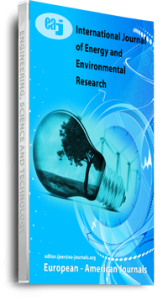This study which benefits from reconnaissance surveys and recent literature on spatial degradation examines the environmental and anthropogenic challenges in the Niger-Delta Region of Nigeria. It argues that the visible environmental restrictions posed by hydro-climatic, vegetal, and geomorphic related occurrences are not significant to prohibit the development of the region. Specifically, the study observes that anthropogenic activities which strongly defied sound environmental principles are accountable for the protracted spate of environmental pollution, cycle of underdevelopment, unemployment, widespread poverty, occurrence of diseases, and human rights violations in the Niger-Delta Region of Nigeria. Based on its findings, the study recommends a number of realistic measures to reposition the region towards the path of sustainable development. These measures include urgent remediation of vastly polluted environment, routine monitoring of the region using satellite remote sensing, adequate infrastructural provisions matched with effective maintenance culture, amendments of mineral derivation, control and utilization laws, provision of reliable jobs to the immediate communities, and harnessing of hydro-climatic resources for permanent safety of the region’s infrastructures. These measures require the integrated efforts of different environmental experts and authentic cooperation of indigenous communities, crude oil industries and the federal government of Nigeria to succeed.
Keywords: Challenges, Crude oil Pollution, Environmental, Human, Mitigation Measures

